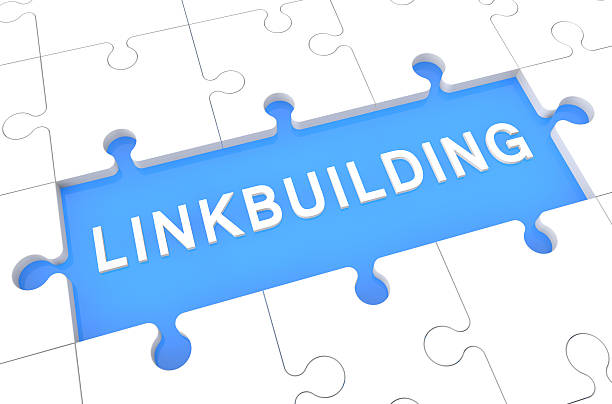All beginners starting out with building backlinks always have this mix of excitement and anxiety that tend to overwhelm them. You know building backlinks is the game changer for you to up your SEO game, but don’t know where to start from and afraid that you might be hit pretty bad by the ever evolving Google’s algorithm.
This article aim for two things: to help you start on the right foot and build up the confidence you need to start getting the result you deserve. The only thing I can say at this stage is that you should hop in, as we uncover everything you need to know leveraging on the expertise of the harmonweb’s team.
Table of Contents
What Is Link-Building and Why Does It Matter?
Link-building is the process of acquiring backlinks (external links from other websites) that point to your website. Google and other search engines consider high-quality backlinks as “votes of confidence,” signaling that your content is valuable and trustworthy.
The juicy part of link building is that you can rest assured real people who are already interested in what you do are reading. This can also be a fast way to rack up leads for your business and multiply your effort pretty quick.
Benefits of Link-Building for SEO:
• Higher search engine rankings: Backlinks are one of Google’s top ranking factors.
• Increased organic traffic: More backlinks mean higher visibility and more visitors to your sites.
• Stronger domain authority: High-quality links improve your site’s credibility.
• Better indexing by search engines: Google crawls and indexes linked pages faster.
Beginner-Friendly Link-Building Strategies
Now that you know why backlinks are crucial, let us dive into easy-to-implement strategies.
1. Guest Posting on Niche-Relevant Sites:
Guest posting is one of the best beginner-friendly link-building tactics. It involves writing an article for another website in your industry in exchange for a backlink to your site.
Practical Tips:
• Find websites in your niche that accept guest posts. Use search queries like:
“write for us” + [your industry],
“guest post guidelines” + [your topic],
“submit an article” + [your keyword].
• Reach out with a personalized pitch offering valuable content.
Example Pitch:
“Hi [Name], I loved your post on [Topic]—great insights! I recently wrote a guide on [Your Topic] that I think your readers would find useful. Could I share it for consideration on your [specific page]? Thanks for your time!”
• Send a follow-up message; if no reply in a week, send a polite nudge.
• Write a high-quality article with a natural backlink to your site.
• LSI Keywords to Use:
“guest blogging opportunities”, “submit a guest post”, or “high-authority sites for guest posts”.
2. Creating Link-Worthy Content (The Skyscraper Technique):
If you create highly valuable and link-worthy content, other websites will naturally link to it. This is where the Skyscraper Technique comes in.
Practical Tips:
• Find high-ranking content in your niche with a lot of backlinks (use tools like Ahrefs or Ubersuggest).
• Create an even better version—more detailed, updated, or visually appealing.
• Reach out to websites linking to the older article and ask them to replace it with your improved version.
• LSI Keywords to Use:
“High-quality backlinks”, “SEO link-building strategies”, or “authoritative content creation”.
3. Broken Link Building (Easy Backlinks for Beginners):
This method involves finding broken (404) links on other websites and suggesting your content as a replacement.
Practical Tips:
• Use Check My Links (Chrome extension) or Ahrefs Site Explorer to find broken links on authority websites.
• Reach out to the website owner, inform them about the broken link, and suggest your content as a replacement.
• If your content is valuable, many will happily replace the broken link with yours.
• LSI Keywords to Use:
“Find broken links”, “reclaim lost backlinks”, or “dead link replacement strategy”.
4. Get Featured on Resource Pages:
Many websites have resource pages that list helpful content and tools in a specific industry. You can get backlinks by getting featured on these pages.
Practical Tips:
• Search for resource pages using queries like:
“best [your niche] resources”, “useful [your topic] links”, or “recommended [your industry] tools”.
• Reach out and request to have your content included if it provides real value.
• LSI Keywords to Use:
“best SEO tools and resources”, “recommended industry links”, or “helpful digital marketing resources”.
5. Leverage Business Directory Listings:
If you have a local or online business, listing it in relevant directories can help build backlinks and improve your local SEO.
Practical Tips:
• Submit your business to high-authority directories like: Google My Business, Yelp, Bing Places, Yellow Pages, and Industry-specific directories.
• Ensure NAP (Name, Address, Phone Number) consistency across all platforms.
• LSI Keywords to Use:
“best business directories for SEO”, “local SEO link-building”, or “submit website to directories”.
Link-Building Mistakes to Avoid
While building backlinks, be mindful of the following black-hat SEO tactics that can get your site penalized by Google:
• Buying backlinks– Google penalizes sites that purchase links.
• Using spammy or low-quality directories – Stick to authoritative sites.
• Over-optimizing anchor texts – Use a mix of branded, generic, and keyword-rich anchors naturally.
• Ignoring relevance – Only get links from industry-relevant websites.
Conclusion
Link-building is a powerful long-term SEO strategy that can catapult your website to new heights. By incorporating tactics like guest posting on niche-relevant sites, creating highly valuable link-worthy content, and finding and replacing broken links with yours, you will be well on your way to boosting rankings, increasing traffic, and strengthening domain authority.
To take your link-building efforts to the next level, consider getting featured on resource pages and listing your business on high-authority directories. By combining these techniques with the strategic use of low-competition LSI keywords, you will be able to attract organic traffic and improve search engine rankings without relying on paid ads. This winning combination will help establish your website as an authority in its niche, driving long-term success and growth.





